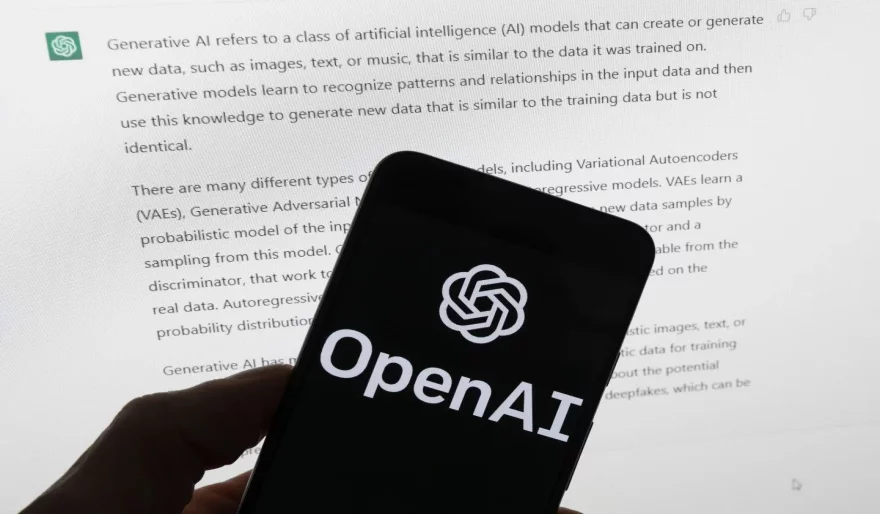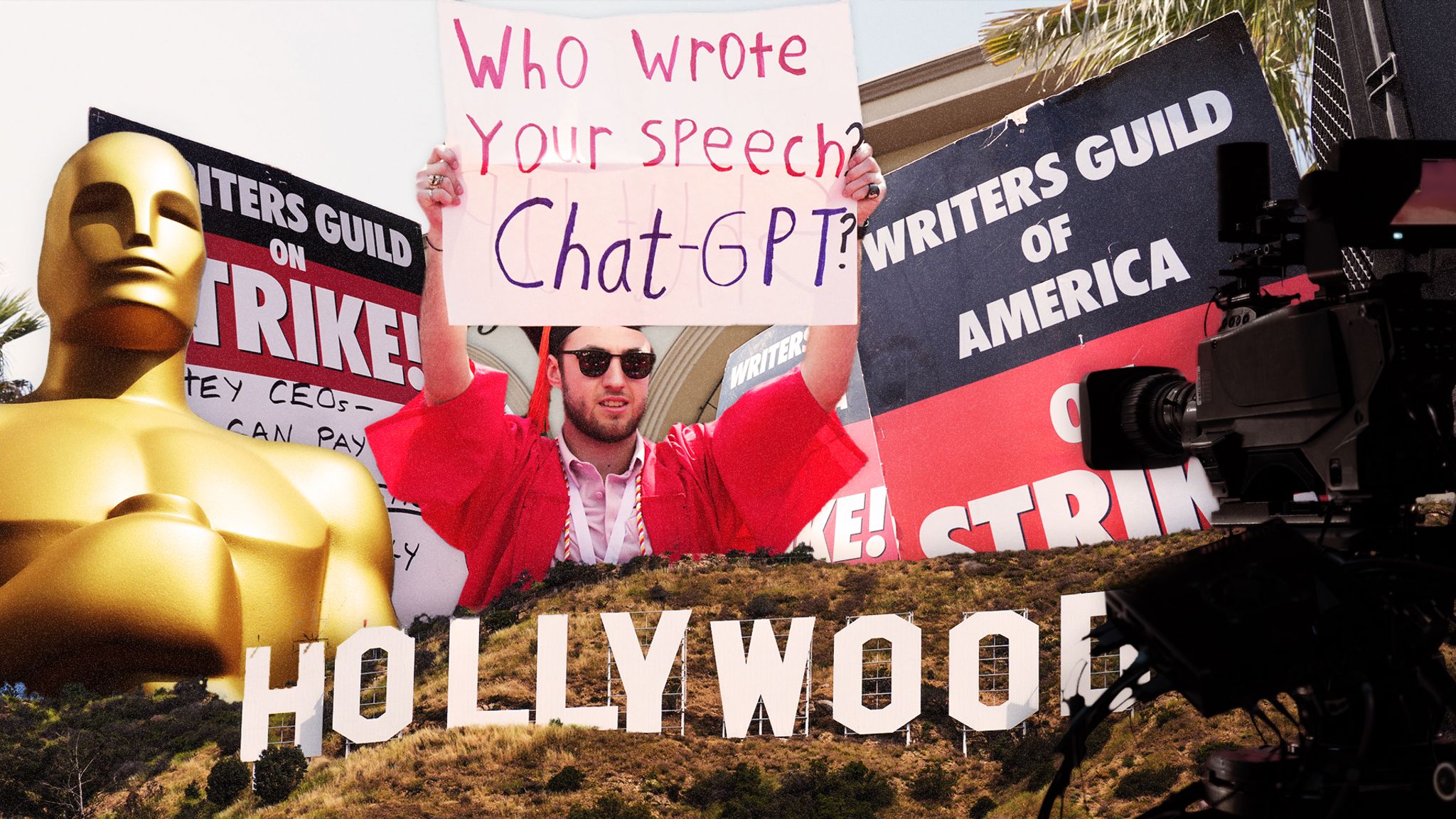FTC Probe Into OpenAI: Implications For The Future Of AI

Table of Contents
The FTC's Focus: Data Privacy and Algorithmic Bias
The FTC's investigation into OpenAI likely centers on two primary areas: data privacy and algorithmic bias. These are crucial aspects of AI development that carry significant ethical and legal ramifications.
Data Privacy Concerns
OpenAI's AI models, renowned for their capabilities, are trained on massive datasets. The FTC is likely scrutinizing OpenAI's data collection and usage practices to determine compliance with user privacy and data security laws. This investigation highlights the inherent tension between leveraging vast datasets for AI training and safeguarding individual privacy rights.
- Potential violations of user privacy and data security laws: The sheer volume of data used raises concerns about potential breaches of regulations like GDPR and CCPA.
- Concerns regarding consent and transparency in data collection: Did users provide informed consent for their data to be used in AI training? Was the data collection process transparent and easily understandable?
- The challenge of anonymizing and securing sensitive personal information used in AI training: Even anonymized data can be re-identified, posing significant risks. The FTC is likely assessing OpenAI's measures to mitigate these risks.
Algorithmic Bias and Fairness
Another critical area of the FTC's investigation is the potential for algorithmic bias in OpenAI's models. AI systems learn from the data they are trained on, and if that data reflects existing societal biases, the AI model will likely perpetuate and even amplify those biases. This raises serious concerns about fairness and equity.
- The impact of biased AI on vulnerable populations: Biased AI systems can disproportionately harm marginalized communities, leading to unfair or discriminatory outcomes.
- The difficulty of detecting and mitigating bias in complex algorithms: Identifying and eliminating bias in AI models is a significant technical challenge.
- Calls for greater accountability and transparency in AI development: The investigation underscores the need for greater transparency and accountability in how AI systems are developed and deployed.
Potential Consequences for OpenAI and the AI Industry
The FTC's investigation could have far-reaching consequences for OpenAI and the broader AI industry. The outcomes will set precedents for future AI development and regulation.
Financial Penalties and Regulatory Changes
The FTC investigation could result in substantial financial penalties for OpenAI, establishing a benchmark for other AI companies. It could also trigger stricter regulations and more rigorous oversight of AI development.
- Potential fines and legal repercussions for OpenAI: Depending on the findings, OpenAI could face significant fines and legal actions.
- The influence on future AI development practices: The outcome will likely shape how other AI companies approach data privacy, algorithmic bias, and overall ethical considerations.
- The creation of new regulatory frameworks for AI governance: This probe could accelerate the development of comprehensive AI regulatory frameworks at both the national and international levels.
Impact on Innovation and Investment
Increased regulatory scrutiny might stifle innovation and investment in the AI sector. Uncertainty surrounding regulations can deter both startups and established companies from pursuing ambitious AI projects.
- The chilling effect of increased regulation on AI research and development: Excessive or poorly designed regulations could hinder the progress of AI research and development.
- The potential for slowing down the pace of AI advancements: Overly cautious approaches to regulation could stifle the pace of innovation in the AI field.
- The need to balance innovation with ethical considerations: The challenge lies in finding a balance between fostering innovation and ensuring the ethical development and use of AI.
The Broader Implications for the Future of AI
The FTC's probe into OpenAI emphasizes the crucial need for ethical guidelines and responsible AI development practices. Its impact extends beyond OpenAI, shaping the global conversation around AI ethics and governance.
Ethical Considerations and Responsible AI Development
The investigation underscores the importance of integrating ethical considerations into every stage of the AI lifecycle, from data collection to deployment and ongoing monitoring.
- The importance of incorporating ethical considerations into the entire AI lifecycle: Ethical considerations must be built into every phase of AI development, not just as an afterthought.
- The need for industry-wide standards and best practices: The industry needs to establish shared standards and best practices for ethical AI development.
- The role of independent audits and third-party verification: Independent audits and verification processes can help ensure accountability and transparency.
Shaping the Future of AI Regulation
The FTC's investigation will significantly influence the future of AI regulation globally, impacting how AI technologies are developed, implemented, and governed.
- The potential for international cooperation on AI regulation: The investigation could spur international collaboration on AI regulation.
- The development of comprehensive AI governance frameworks: The need for robust and comprehensive AI governance frameworks is becoming increasingly urgent.
- The role of government agencies in overseeing the AI industry: Government agencies will play a crucial role in overseeing the AI industry and ensuring compliance with regulations.
Conclusion
The FTC's probe into OpenAI is a pivotal moment in the history of artificial intelligence. The investigation's outcome will profoundly shape the future trajectory of AI development, impacting data privacy, algorithmic bias, innovation, and the creation of regulatory frameworks. Understanding the implications of this probe is crucial for all stakeholders – from developers and investors to policymakers and the public. Staying informed about the ongoing FTC investigation into OpenAI and related developments in AI regulation is essential. The future of AI hinges on responsible development, ethical considerations, and a proactive approach to addressing potential risks. Therefore, closely following the FTC probe into OpenAI and similar regulatory actions is vital for navigating the complex landscape of artificial intelligence and ensuring its beneficial and ethical development.

Featured Posts
-
 Secret Service Completes Probe Into Cocaine Found At White House
Apr 26, 2025
Secret Service Completes Probe Into Cocaine Found At White House
Apr 26, 2025 -
 The Visuals Of Sinners Exploring The Cinematography Of The Mississippi Delta
Apr 26, 2025
The Visuals Of Sinners Exploring The Cinematography Of The Mississippi Delta
Apr 26, 2025 -
 Hollywood Production Halted The Combined Writers And Actors Strike
Apr 26, 2025
Hollywood Production Halted The Combined Writers And Actors Strike
Apr 26, 2025 -
 American Battleground Taking On The Worlds Wealthiest In A High Stakes Battle
Apr 26, 2025
American Battleground Taking On The Worlds Wealthiest In A High Stakes Battle
Apr 26, 2025 -
 Exclusive Polygraph Threats And Internal Conflict Shake Pentagon Hegseths Response
Apr 26, 2025
Exclusive Polygraph Threats And Internal Conflict Shake Pentagon Hegseths Response
Apr 26, 2025
